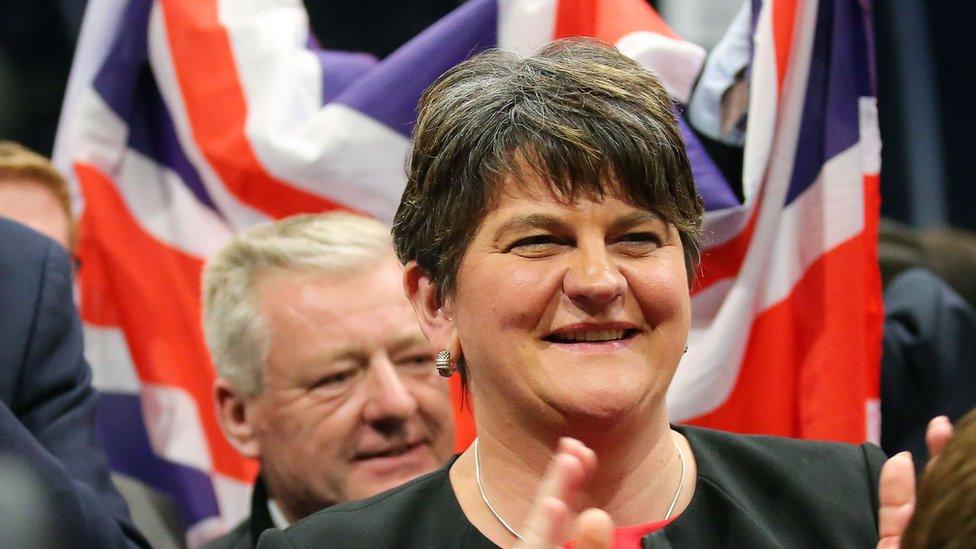General election 2017: Tories and DUP 'still in discussions'
- Published
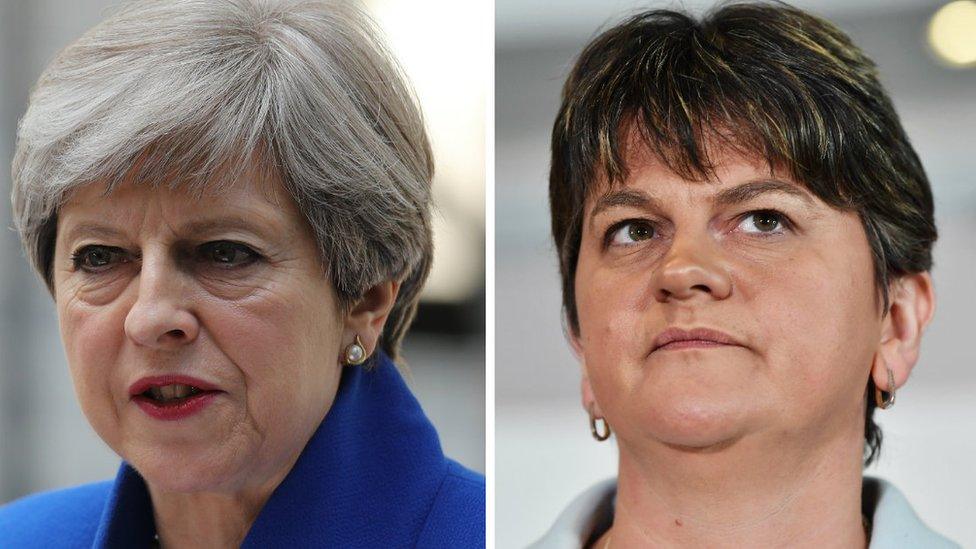
Theresa May's Conservatives are seeking a deal with Arlene Foster's DUP
Downing Street and the Democratic Unionist Party say they are still in discussions over a possible deal to secure support for a minority Conservative government.
On Saturday, Downing Street announced a deal had been agreed in principle - but both sides then issued statements saying talks were ongoing.
The Tories need the support of the DUP's 10 MPs for a Commons majority.
No 10 described it as a "confidence and supply" deal rather than a coalition.
Prime Minister Theresa May is under pressure after Thursday's general election left her without a majority.
Labour leader Jeremy Corbyn told the Sunday Mirror he could still be prime minister.
Foreign Secretary Boris Johnson, meanwhile, dismissed reports of a Tory party leadership bid as "tripe".
The agreement being discussed between the DUP and the Tories, who fell eight seats short of a majority in Thursday's election, is not a full coalition, but an agreement which sees the smaller party support the larger one in key votes such as on the Budget.
Downing Street and the DUP issued separate statements overnight, emphasising that the deal between them had not yet been finalised.
The tone of both was in contrast to Saturday evening's message from No 10, which said a deal had been agreed in principle.
In a DUP statement released at midnight, the party said: "The DUP held discussions with representatives of the Conservative Party in line with Arlene Foster's commitment to explore how we might bring stability to the nation at this time of great challenge.
"The talks so far have been positive."
The DUP also retweeted a Sky News journalist's tweet claiming Downing Street's first statement had been issued in error.
'Will end in tears'
Within an hour, Downing Street said the details would be put forward by both parties "as and when" they were finalised.
It added: "We will welcome any such deal being agreed, as it will provide the stability and certainty the whole country requires as we embark on Brexit and beyond."
No explanation has been given for the change by Downing Street.
In response to the earlier Downing Street statement, Liberal Democrat leader Tim Farron called on Mrs May to make public immediately the details of the deal "stitched up behind closed doors".
Sinn Féin's leader in Northern Ireland Michelle O'Neill said the DUP had "betrayed the interests of the people" and the new arrangement would "end in tears".
Mr Corbyn said the government did not have any credibility to go forward and the Labour Party would do what it could to stop it, including by voting down the Queen's Speech.
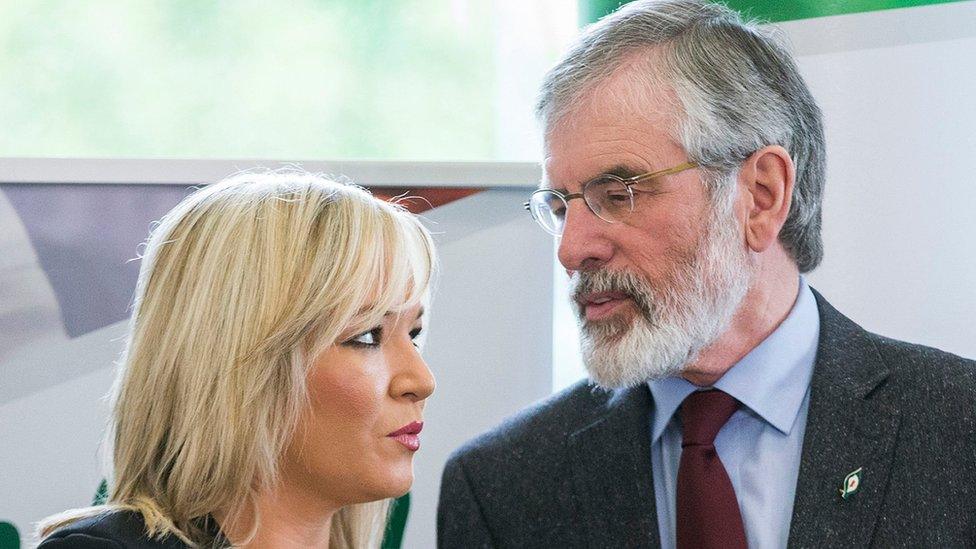
Sinn Féin has said the deal will "end in tears"
The DUP are pro-union in UK terms, pro-Brexit and socially conservative.
The party's 2017 manifesto outlined calls for increases in the personal tax allowance, continued rises in the national living wage, renewal of the Trident nuclear deterrent and revisiting terrorism laws - all similar to Conservative policy.
But they differ in areas including abolishing air passenger duty, cutting VAT for tourism businesses and maintaining a triple lock on pensions.
Tory chief whip Gavin Williamson met DUP chiefs in Belfast on Saturday.
Newsnight political editor Nick Watt said the DUP and Conservatives had been "looking at the full range of possibilities" during Mr Williamson's visit.
The parties had discussed everything from just an informal undertaking to a full coalition agreement.
He added: "I am told that what the DUP are looking at is securing benefits. So keep the pension triple lock and preserve universal benefits such as the winter fuel allowance for pensioners.
"That would allow the DUP to say 'we are not just acting in the interests of Northern Ireland, we are true unionists, we are acting in the interest of the whole of the United Kingdom'."
Meanwhile, the Mail on Sunday, external reported a "close ally" of Mr Johnson as saying it was "go-go-go" to get him to take over the party from Mrs May.
But Mr Johnson tweeted, external: "Mail on Sunday tripe - I am backing Theresa May. Let's get on with the job."

What is a 'confidence and supply' deal?
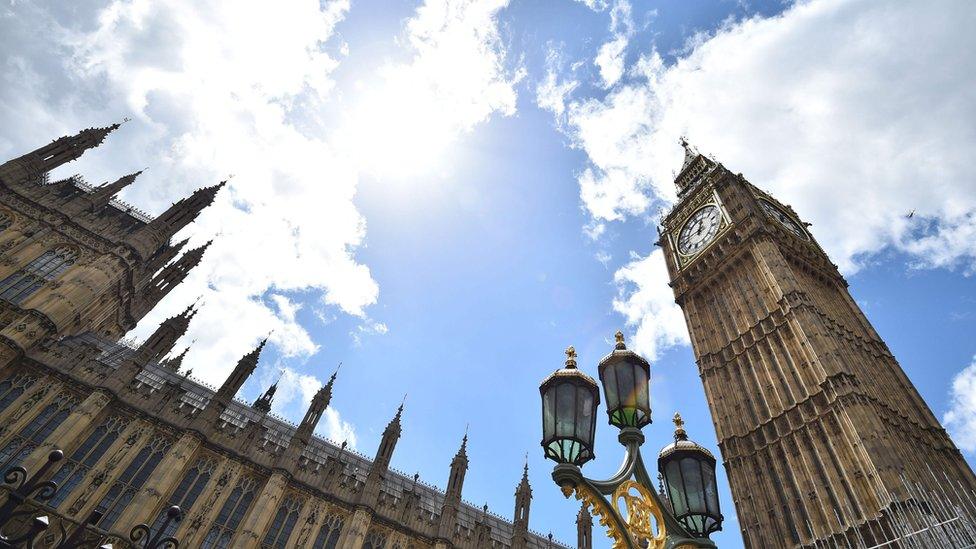
This deal would see the DUP promise to back the government in votes of no confidence and supply - or Budget - issues.
In return, the government would support or fund some of the DUP's policies.
These deals tend to be loose and a long way short of a formal coalition.
Minority governments like this are not uncommon.
John Major survived without a majority in the dying days of his Tory administration in the mid-1990s.
Labour's Harold Wilson and James Callaghan governed with minorities for much of the 1970s.
But these governments can be quite constrained in what they can do, passing as little legislation as possible to avoid defeat.
They can also be unstable and short lived, if the deal between the parties breaks down and fresh elections have to be called.

- Published10 June 2017
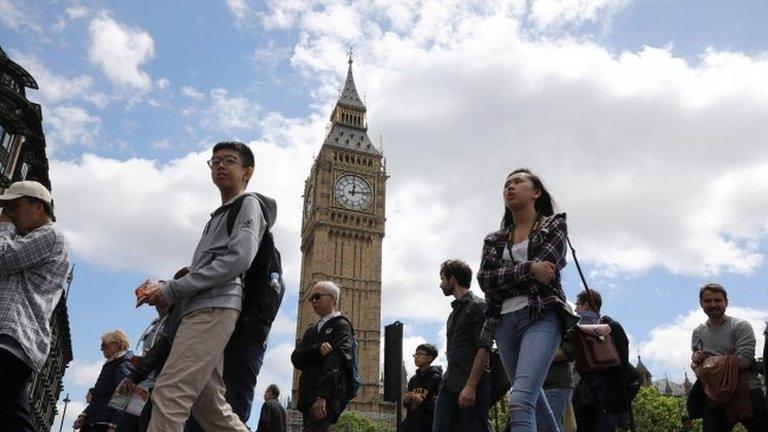
- Published9 June 2017
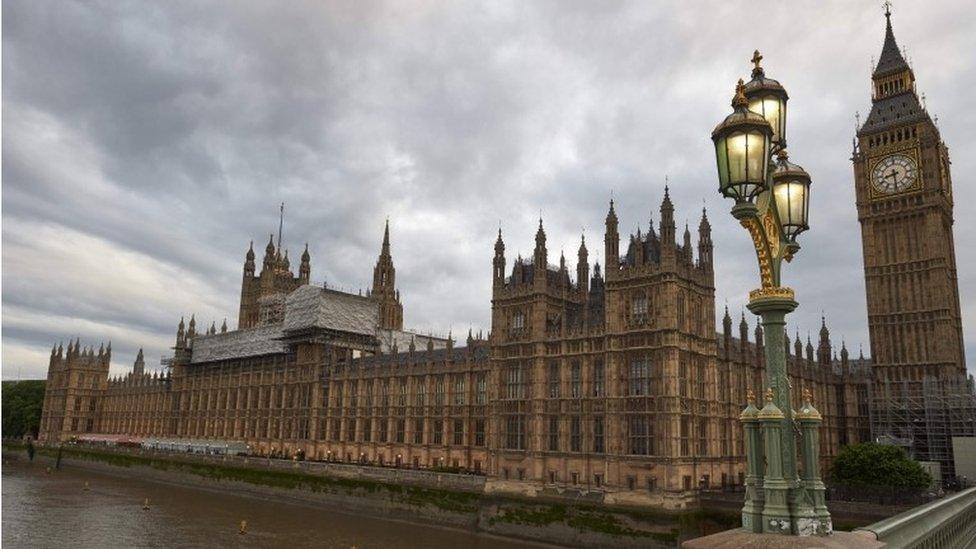
- Published9 June 2017
- Published10 June 2017
